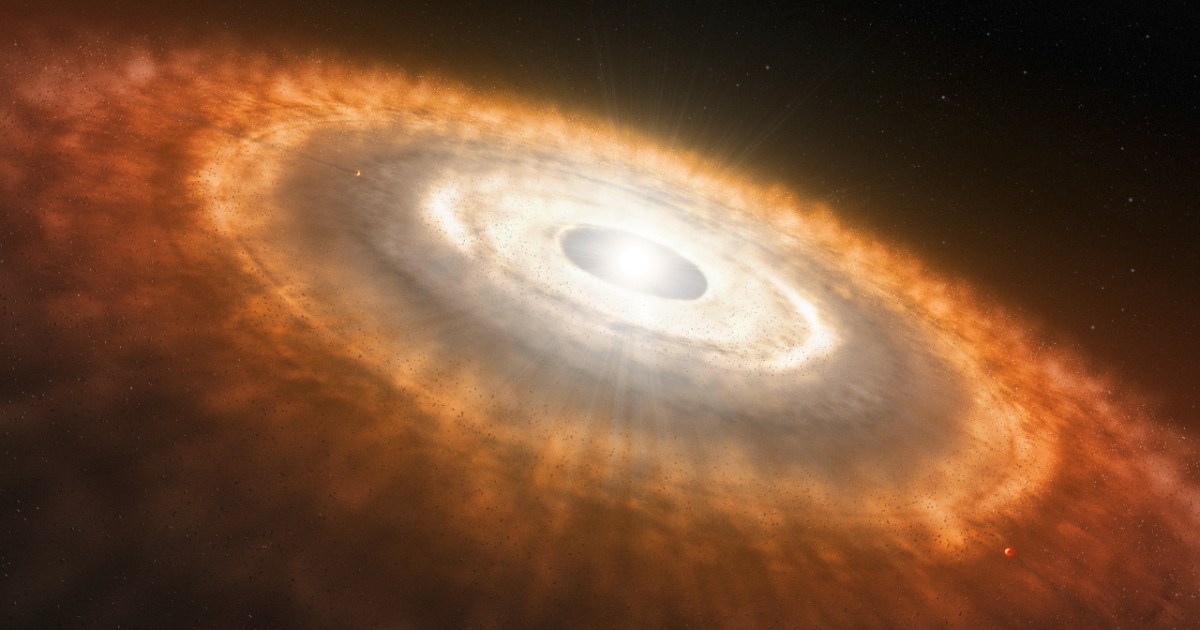It takes a particular confluence of conditions for rocky planets like Earth to form, as not all stars in the universe are conducive to planet formation. Stars give off ultraviolet light, and the hotter the star burns, the more UV light it gives off. This radiation can be so significant that it prevents planets from forming from nearby dust and gas. However, the James Webb Space Telescope recently investigated a disk around a star thatseems like it could be forming rocky planets, even though nearby massive stars are pumping out huge amounts of radiation.
The disk of material around the star, called a protoplanetary disk, is located in the Lobster Nebula, one of the most extreme environments in our galaxy. This region hosts massive stars that give off so much radiation that they can eat through a disk in as little as a million years, dispersing the material needed for planets to form. But the recently observed disk, named XUE 1, seems to be an exception.
The researchers used James Webb’s Mid-Infrared Instrument (MIRI) to identify water, carbon monoxide, carbon dioxide, hydrogen cyanide, and acetylene in the disk. Those are some of the building blocks for rocky planets and show that the disk is similar to other planet-forming disks, despite the high amount of UV radiation.
“We were surprised and excited because this is the first time that these molecules have been detected under these extreme conditions,” said one of the authors, Lars Cuijpers of Radboud University, in a statement.
The problem for this disk is that there are a number of nearby massive stars, so the disk is being bombarded by UV radiation from several sources. The disk does seem to be a bit smaller than expected, but it still appears that it could be capable of forming rocky planets. That means that rocky planets could form even in very extreme environments, if this particular disk is not an outlier.
“XUE 1 shows us that the conditions to form rocky planets are there, so the next step is to check how common that is,” said lead researcher María Claudia Ramírez-Tannus of the Max Planck Institute for Astronomy. “We will observe other disks in the same region to determine the frequency with which these conditions can be observed.”
The research is published in The Astrophysical Journal.
Editors’ Recommendations






